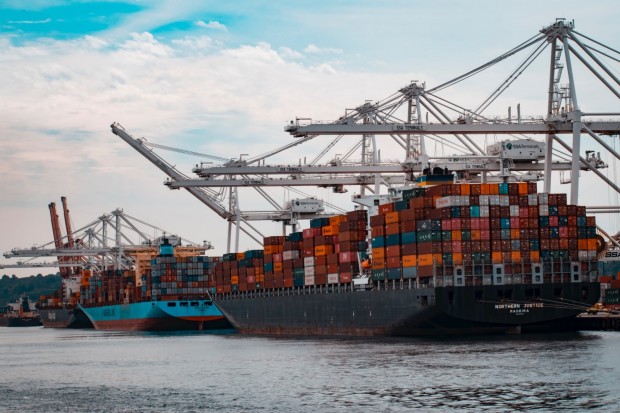
(Photo: Andy Li)
International trade holds great importance in a country's economy and provides a source of earning to many people. There are many parties involved in the whole process of moving the commodities from one place to another. These are:
1. Credit information bureau
A firm that collects and researches individual credit information and provides it to creditors against a sum of money to decide extending credit. Such bureaus provide confidential information to the exporter about the importer and his business which helps the supplier evaluate the buyer's position and take appropriate decisions. Accurate and timely information from these agencies is crucial for any business as inefficiency in this respect can adversely affect the reputation and business of the exporter.
2. Packaging firm
Professional packaging firms ensure that required standards are met for shipment goods by sea, air, or land routes. Their expertise is crucial, especially when a shipment is to be made on deck or in cases where more than one means of transportation is required. These firms package commodities and send them through the ship or any route that prevents the goods from spreading out.Most of the companies have their own department of packaging in which they purchase raw material and make plastic bags and cartoons to do packaging; if they do not do this through their own department, they will take the services of the packaging firm.
3. Transporter
Generally, a transporter could be a shipping lineman, airline, or trucking company. Like the importer and the exporter, the role of the transporter is equally crucial, mainly where a shipment is made by sea because a bill of lading is the document for transfer of title of goods. If due care is not exercised, the possibility of its misuse by fraudulent elements cannot be ruled out. International moving plays a crucial role whenever you want to shift your home or office in international moving as they are responsible for safely transferring your commodities.
4. Shipowner (in case of charter party shipment)
Charter party arrangement involves leasing a vessel by a party other than the actual owner of the ship for a particular international moving or period. Other transportation of certain commodities is made in bulk, for example, cement, steel billet, chemical fertilizer, etc. In such cases, a charter party shipment is standard. It is a high-risk option that requires detailed information about the charter party agreement, parties to the deal, and the possible link with the buyer or seller.
5. Shipmaster and crew
For a particular voyage, the shipmaster and crew may not be relevant to the transaction; however, their conduct and performance during the journey may have an impact on the fate of the merchandise in question as careless or inefficient handling of cargo, or the ship can potentially give rise to insurance disputes.
For example, if pesticides are not placed at the proper place in the ship, and the containers get a leak and mix with other goods, this damage will be off the ship staff.
6. Charterer
A charterer can be an individual or entity. A chartered party arrangement is a high-risk option as it is not easy to determine the owner or master's reputation and experience handling a chartered ship and its crew. It is the company that rents the vessel for one or more vogue. They take it on lease from the shipowner for a specific period or voyage.
7. Custom clearing agent
Customs clearing is the responsibility of a professional agent that involves the clearing of goods through customs barriers. This consists in preparing relevant documents or electronic submission of goods declaration (GD), calculating and paying taxes, duties, and excises for and on behalf of the client, and facilitating communication between the importer/exporter and governmental authorities.
8. Freight forwarder
A freight forwarding firm specializes in arranging storage and shipping of merchandise on behalf of shipper clients. A full range of services is usually provided, including tracking inland transportation, preparation of shipping, and export documents, warehousing, booking cargo space, negotiating freight charges, freight consolidation, cargo insurance, and filing of insurance claims.
9. Insurance company
An insurance company under a contract with the insured (importer or exporter) undertakes to indemnify the insured regarding possible loss or damage to vessels or cargo during transportation of goods from one location to another. The insurer is known as an underwriter, and the document in which the contract is incorporated is called a marine policy. Under this arrangement, the insured pays a specified service charge, i.e., premium, in exchange for the undertaking from the insurer indemnifying the insured against loss or damage caused by precisely specified perils.
This article is copyrighted by Travelers Today, the travel news leader
* This is a contributed article and this content does not necessarily represent the views of travelerstoday.com



